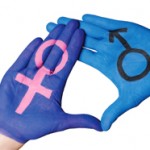“Male researchers are more likely to describe their work as ground-breaking or novel compared with female research not because men are more confident than women, but because women are penalized when they demonstrate typical ‘masculine’ traits like assertiveness,” Dr. Morgan, who wasn’t involved in the study, says by email.
“Women are often expected to show more feminine traits, [such as] empathy and being modest, or risk being seen as less likeable and not a team player,” Dr. Morgan adds. “This leads to women promoting themselves and their work less than men, which can negatively affect their career progression.”
Journals may unintentionally perpetuate existing gender bias if they don’t put procedures in place to make the wording of published papers gender neutral, Morgan said. To avoid this, journals could create strict criteria research must meet for scientists to describe the work as “first” or “novel” or use other common superlatives.
“This could have the effect of ensuring more women describe their research that way, or limiting the number of men who do,” Dr. Morgan says.
Reference
- Lerchenmueller MJ, Sorenson O, Jena AB. Gender differences in how scientists present the importance of their research: Observational study. BMJ. 2019 Dec 16;367:l6573.


